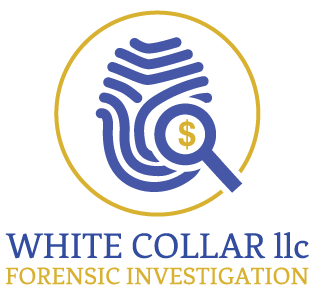In the healthcare arena, compliance issues constantly arise, and especially when a crisis comes along.
COVID-19 is such a crisis, and one that has been enhanced from a compliance perspective by the Coronavirus Aid, Relief and Economic Security (CARES) Act, which released over $2.2 billion into the economy to various businesses, healthcare facilities, providers’ offices, and more.
Healthcare providers received the bulk of these funds, to help offset the financial impact of COVID-19 as well as assist in testing and treating people who have contracted the virus.Supersized health systems to small hospitals and even small physician practices have all received these types of funds.
What we learned from Hurricane Katrina, after massive federal funds were channeled into the economy via multiple recipients, is that the federal government is a magnet for fraud schemes and scams, which includes those who petition for funds without foundation. Government officials are particularly drawn to the False Claims Act, wherein the damages can be trebled, fines can be assessed, and even criminal charges brought. Many of these fraud schemes are uncovered by Relators, better known as “whistleblowers.”
The False Claims Act comes into play in times of emergency spending, especially at the levels being discussed and distributed during the pandemic we are now experiencing.This act is the federal government’s greatest tool when investigating fraud within the spending of federal monies.
The False Claims Act:
- Gives the government a strong and feared resolution leading to treble damages and civil penalties against any individual or company which commits and perpetuates fraud (e.g. the submission of false claims for remuneration to the federal government either knowingly or those who act with ignorance of the law/reckless disregard for the false claims filed)
- Allows for the use of whistleblowers (those who come to the government with evidence or suspicion of false claims being submitted).Whistleblowers can file Qui Tam suits (meaning on behalf of the King, orin these cases, on behalf of the federal government)
COVID-19 has led to significant government funds being released due to the damages it has caused to businesses, hospitals, health care companies, physician practices and others. The CARES Act allotted over $175 billion in emergency funds to be distributed by the HHS via emergency funding mechanisms. The method by which the monies were distributed to healthcare businesses was based on their prior year amounts billed to Medicare.
As a part of this, the Department of Justice is urging those who know of fraud schemes and fraudulent claims to report those actions immediately to stem the tide of false claims being submitted.Whistleblowers are now coming forward at rapid rates, and federal officials are investigating at enhanced levels.
The question then becomes what can healthcare companies do to mitigate the risk of non-compliance?
Compliance has been – and will continue to be –a critical part of receiving government funds during the pandemic, as well as other disasters that occur in the United States.Without compliance, the False Claims Act can easily come into play and be more damaging, both financially and criminally, than most can possibly imagine.
2 critical components of mitigating compliance matters are to ensure that:
- Claims are made correctly
- The rules adopted by the program regarding the distribution of monies have been followed diligently through understanding and action
It’s also important that:
- The funds be used for their intended purposes
- Detailed records are kept that demonstrate compliance
The overall compliance plan embraced by each entity must:
- Incorporate the rules related to the distribution of funds
- Commit the rules to writing and keep a record of any government changes insofar as rules or requirements are issued
- Make sure the records separate any COVID-19 funds from ordinary revenues (from receipt through spend)
In addition:
- Those who prepare and submit the required government forms accounting for the funds must ensure that the forms are correct, reviewed, and signed by the appropriate officer(s)
- Best practices in compliance must be established, and involve the compliance officers, C-Suite executives and the Board of Directors
- Everyone must be aware of the risks, as well as the steps being taken to ensure compliance.Transparency in communication is a must.
- Separate records related to the pandemic funds must be maintained so there is no intermingling, despite how easy one might believe it to be.Separate records require no explanation.
Lastly, any business relationships, partnerships or alliances must be scrutinized so that all entities are compliant to the letter of the law. Equally important is that they comply before entering into any deal with other entities.
The risks are real, tangible and costly. The damages, once determined, will be tripled under the False Claims Act, with penalties ranging from $11,665 to $23,331 PER VIOLATION. Criminal charges may also be filed.
Don’t think that the government will not look. Do not unbundle charges. Don’t accept kickbacks, even though they are often offered through labs and testing companies. Do expect a review of monies received and spent.
At the end of the day, the risks are too great, and the payoff is deminimis when you consider what a single FCA penalty can cost you.

